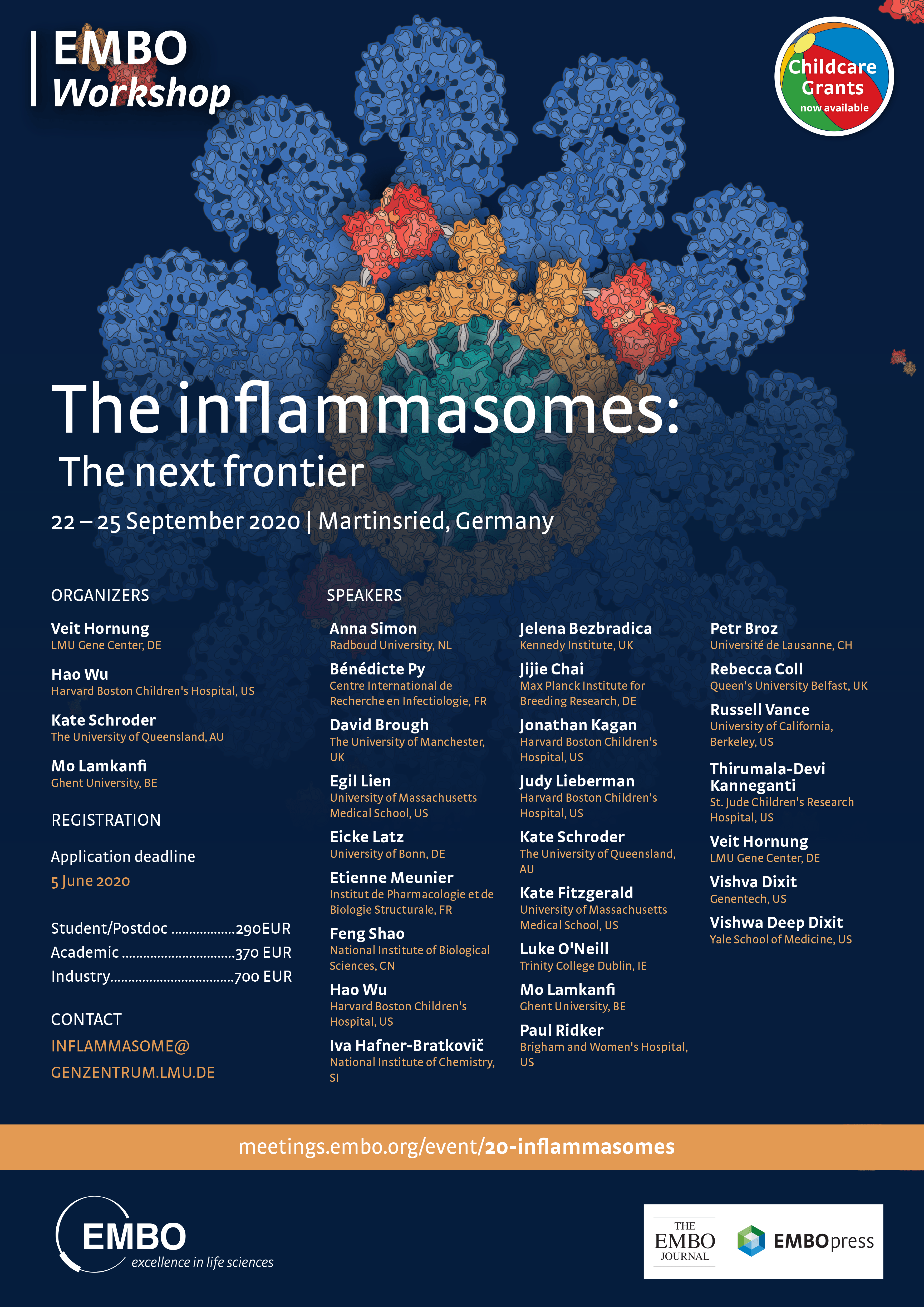The inflammasomes: the next frontier
Delighted to be part of the organising committee for the upcoming EMBO Workshop on inflammasomes: the next frontier in Germany in September 2020. This meeting will showcase exciting science from inflammasome-ologists around the globe.
About the Workshop
The innate branch of the immune system serves as the first line of defense, with the intricate task of detecting molecules and organisms that are a danger to the organism. Inflammasomes constitute a family of cytosolic sensors that can directly detect microbial molecules, but also indirectly sense damage by detecting the perturbation of cellular homeostasis. In recent years great progress has been made in the characterization of inflammasome components and their pivotal role as surveillance machineries in microbial infection. In addition, it has become evident that many non-communicable diseases are triggered or perpetuated by inflammasomes and a number of studies have uncovered the significant therapeutic potential of targeting these pathways. In that regard, inflammasomes have also become a prime focus for the development of novel anti-inflammatory therapies.
This EMBO workshop provides the unique opportunity to bring together researchers from diverse fields and disciplines to discuss the latest progress on inflammasome biology, ranging from basic molecular mechanisms all the way to clinical applications. Importantly, the workshop will also provide an interactive forum for trainees, junior researchers, established scientists and industry to foster interdisciplinary and interprofessional communication in this emerging field.
For more information, and to register, please visit the EMBO Inflammasomes website.
WCI2019 Organising Committee: Profs Veit Hornung, Hao Wu, Kate Schroder, and Mo Lamkanfi.
Copyright © 2017 - The University of Queensland

